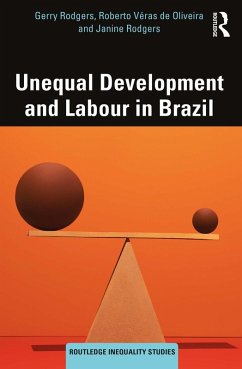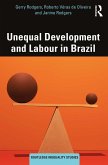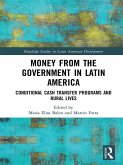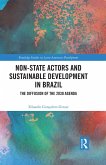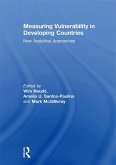Dieser Download kann aus rechtlichen Gründen nur mit Rechnungsadresse in A, B, BG, CY, CZ, D, DK, EW, E, FIN, F, GR, HR, H, IRL, I, LT, L, LR, M, NL, PL, P, R, S, SLO, SK ausgeliefert werden.
needs to be praised. [...] I would recommend the reading of this book as a priority for all social scientists
interested by the economic, social, and political situation of Brazil and its Northeast region
but also, more widely, to all those working on development policies, regional inequality
issues and the determinant role of labour market and employment conditions to reduce
poverty.
Jean-Luc Maurer, Honorary Professor in Development Studies, The Graduate Institute of International and
Development Studies, Geneva
This fine book provides an assessment and analysis of the pattern of unequal development in Brazil, with specific reference to Brazil's Northeast region, which has historically been significantly less developed and poorer than other regions. It is a fascinating, rich and insightful account of both the historical processes that contributed to the "persistent disadvantage" of this region compared with other parts of Brazil, as well as a careful and penetrating analysis of recent policies that either reduced this disadvantage (during the 2003-14 period) or once again led to increasing inequalities (in the period after 2016, in particular). Clearly, therefore, this book will be essential reading for anyone concerned with Brazil's economic development and the living conditions of its people, especially in the Northeast. In fact, the book is much more than that and deserves an even wider audience, providing an object lesson in how to study inequality, both horizontal and vertical. The thoughtful political economy approach and the recognition of the intermingling of different forces are both admirable.
Jayati Ghosh, Professor of Economics, University of Massachusetts, Amherst, USA

